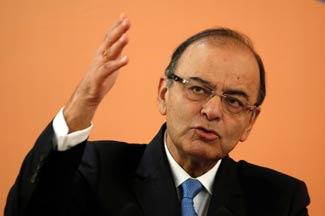The Goods and Services Tax (GST) council, which is headed by union finance minister Arun Jaitley and comprises his counterparts from all the states, will meet on Thursday and Friday, in a bid to arrive at a consensus on the issue of tax rates. Here is all that you can expect from this crucial two-day meeting.
What’s on top of the GST Council’s agenda? Why is this meeting crucial?
The council will try and find a consensus on the question of the actual tax rates that will be applicable once the new indirect tax regime is rolled out. This is the third time the GST Council is meeting since it was formed. This meeting is crucial because it comes just weeks before the winter session of Parliament later this month, during which the government will bring the second part of the legislation—bills on Central GST and Integrated GST—which are crucial to implement the GST regime.
The government has set itself a goal of implementing the GST by 1 April 2017, and is running against time. If the Centre and states cannot arrive at a consensus during this meeting, the government could find it tough to keep this deadline. Besides tax rates, the council will also take up the issue of dual control of Centre and states over the issue of assessment.
What are the proposals for tax rates?
The Centre is proposing a commodity-wise multi-tier tax rate structure at 4%, 6%, 12%, 18% and 26%. While it proposes to tax gold and other precious metals at 4%, others goods will be put into one of the other tax slabs. In addition, it has proposed levying an additional cess on demerit goods including aerated drinks, tobacco and pollution-causing agents. This will be over and above the 26% tax on these items. This cess, the Centre hopes, will generate Rs 50,000 crore, which will help it compensate producing states for the revenue shortfall they are likely to suffer following the implementation of the GST.
So, what are the major disagreements between the Centre and states?
If news reports are to be believed, several states including Uttar Pradesh, West Bengal and Kerala have a problem with the 26% tax rate on demerit goods, which they contend is low, and the additional cess proposed to be levied on the same. States say that since consumer durables are already taxed between 27% and 34% in the present system, goods like tobacco should be taxed at 28-30% at least. They also say that the Centre’s imposition of a levy would deprive them of revenue, even if the proceeds are used to compensate producer states. They also say that the Centre wants to keep the highest tax slab at 26% so that it can levy an additional cess in future, if it needs to shore up its revenue.
Can the Centre have its way in the council, even if most states oppose its proposals?
Not really. As VCCircle had noted earlier, every decision of the council needs to be passed with at least a three-fourths majority. The Centre’s vote carries a one-third weight in the council while the states have a collective weight of two-thirds, thus making them a formidable block. Therefore, a consensus will be the best way forward for both the Centre and the states.
Moreover, the central government would like that the issue of tax rate be resolved via a consensus as it needs to get the next round of legislation passed in the winter session of parliament, if the GST has any chance of being implemented by April 2017. The government would want opposition parties on its side, as it does not enjoy a majority in the Rajya Sabha, where the remaining GST-related legislation will need to be passed for them to become law.
Like this report? Sign up for our daily newsletter to get our top reports.





